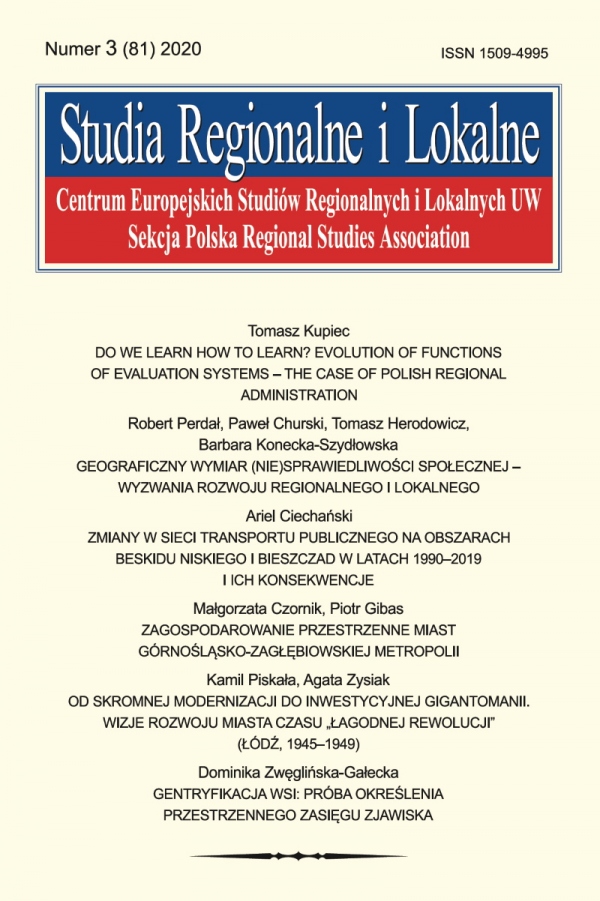Issue:
3(81)/2020
Ariel Ciechański
Changes in the Public Transport Network in the Areas of Low Beskid and Bieszczady 1990–2019 and Their Consequences
DOI: 10.7366/1509499538103
Zmiany w sieci transportu publicznego na obszarach Beskidu Niskiego i Bieszczad w latach 1990–2019 i ich konsekwencje
Wykluczenie transportowe stanowi obecnie poważny problem społeczny, zwłaszcza w powiatach Beskidu Niskiego i Bieszczad. Dla lepszego zobrazowania tego zjawiska konieczna jest obserwacja zmian w sieci pozamiejskiego transportu publicznego, szczególnie zaś wyznaczenie obszarów, na których jego jakość uległa znacznemu pogorszeniu. Punkt wyjściowy badania stanowi rok 1990. Wtedy to z jednej strony gospodarka przestawiała się już na nowe wolnorynkowe zasady, z drugiej zaś w przewozach dominowały wciąż jeszcze przedsiębiorstwa PKS. Punkt końcowy badania stanowi początek 2019 r. W artykule przybliża się również tło opisywanych zmian. W ramach podsumowania dyskutuje się konsekwencje zaobserwowanych procesów oraz rekomenduje się, jak część ich negatywnych skutków zneutralizować.
Changes in the Public Transport Network in the Areas of Low Beskid and Bieszczady 1990–2019 and Their Consequences
Transport exclusion is currently a serious social problem, especially in the counties of the Low Beskids and the Bieszczady Mountains. To better illustrate this problem, it is necessary to observe changes in the suburban public transportation network and, in particular, to identify areas where its quality has deteriorated significantly. The starting point of the research is the year 1990, when on the one hand, the economy was already shifting to the new free market principles, while on the other hand, PKS enterprises still dominated the public transport. The endpoint of the study is the beginning of the year 2019. The article also discusses the background of the described changes. The summary also includes the consequences of those processes as well as the recommendations on how to neutralise some of their negative effects.
Affiliation:
Ariel Ciechański: Instytut Geografii i Przestrzennego Zagospodarowania im. St. Leszczyckiego PAN, ul. Twarda 51/55, 00-818 Warszawa, Polska; ORCID: 0000-0002-4123-6533;
ariel@twarda.pan.pl 


